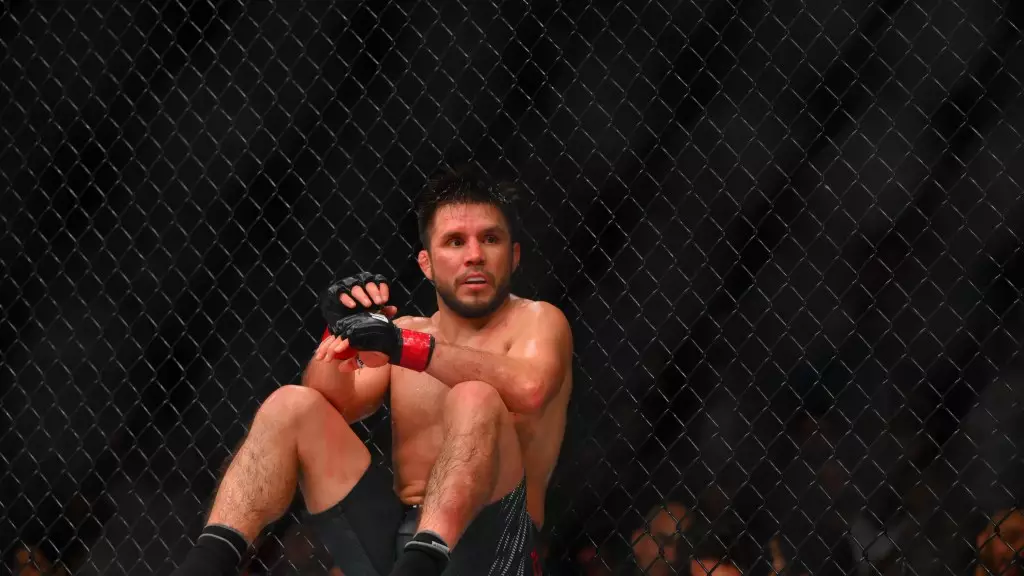Mixed Martial Arts (MMA) continues to rise in popularity, yet with that increased visibility comes a growing concern over fighter safety. One particularly alarming issue is the prevalence of eye pokes, which can result in debilitating injuries and cut fights short. This concern was recently highlighted in the aftermath of the UFC Fight Night 252 event, where Song Yadong’s unintentional eye poke rendered Henry Cejudo unable to continue their bout. The incident has reignited conversations about how the sport addresses eye pokes and the penalties associated with them.
Former UFC middleweight champion Michael Bisping has become an outspoken advocate for stricter repercussions regarding eye pokes. Drawing from his own experiences—a traumatic detached retina that drastically affected his vision during his career—Bisping underscores the potential risks associated with negligent behavior in the octagon. He argues that unless the sport implements tangible consequences, such as point deductions, fighters will continue to engage in reckless behavior, both intentionally and unintentionally. His candid criticism on his YouTube channel sparked debate among fans and analysts alike.
In the fight between Song Yadong and Henry Cejudo, the technical decision came after the accidental eye poke, which left Cejudo uncertain about his vision. Despite taking the full five minutes to recover, the inability to see forced the fight to an abrupt end, leading to a decision that some believe does not adequately reflect the contest that unfolded. The incident raises questions about how referees and officials manage such situations and the necessity of clearer guidelines for dealing with eye pokes in real time.
While accidents do happen, fighters need assurance that there are consequences for actions that can jeopardize their safety and career longevity. Bisping advocates for immediate and stricter enforcement, suggesting that if fighters knew they risked losing points for eye pokes, they might think twice before extending their fingers in such a careless manner. This change could enhance safety protocols and encourage more mindful engagement among fighters, ultimately protecting their well-being.
To foster a culture of accountability, organizations like the UFC must seriously consider adjusting their rules. More rigorous measures could include mandatory training for referees to recognize and address eye pokes more efficiently. With Bisping’s call for change echoing in the MMA community, it is crucial for those involved in the sport—fighters, regulators, and fans—to advocate for structures that prioritize fighter health over mere entertainment.
As the sport continues to evolve, implementing comprehensive guidelines and enacting harsh penalties could safeguard the fighters’ vision and ensure that their careers are not cut short due to avoidable injuries. The conversation initiated by Bisping may just be the catalyst needed for real change in the realm of fighter safety.

